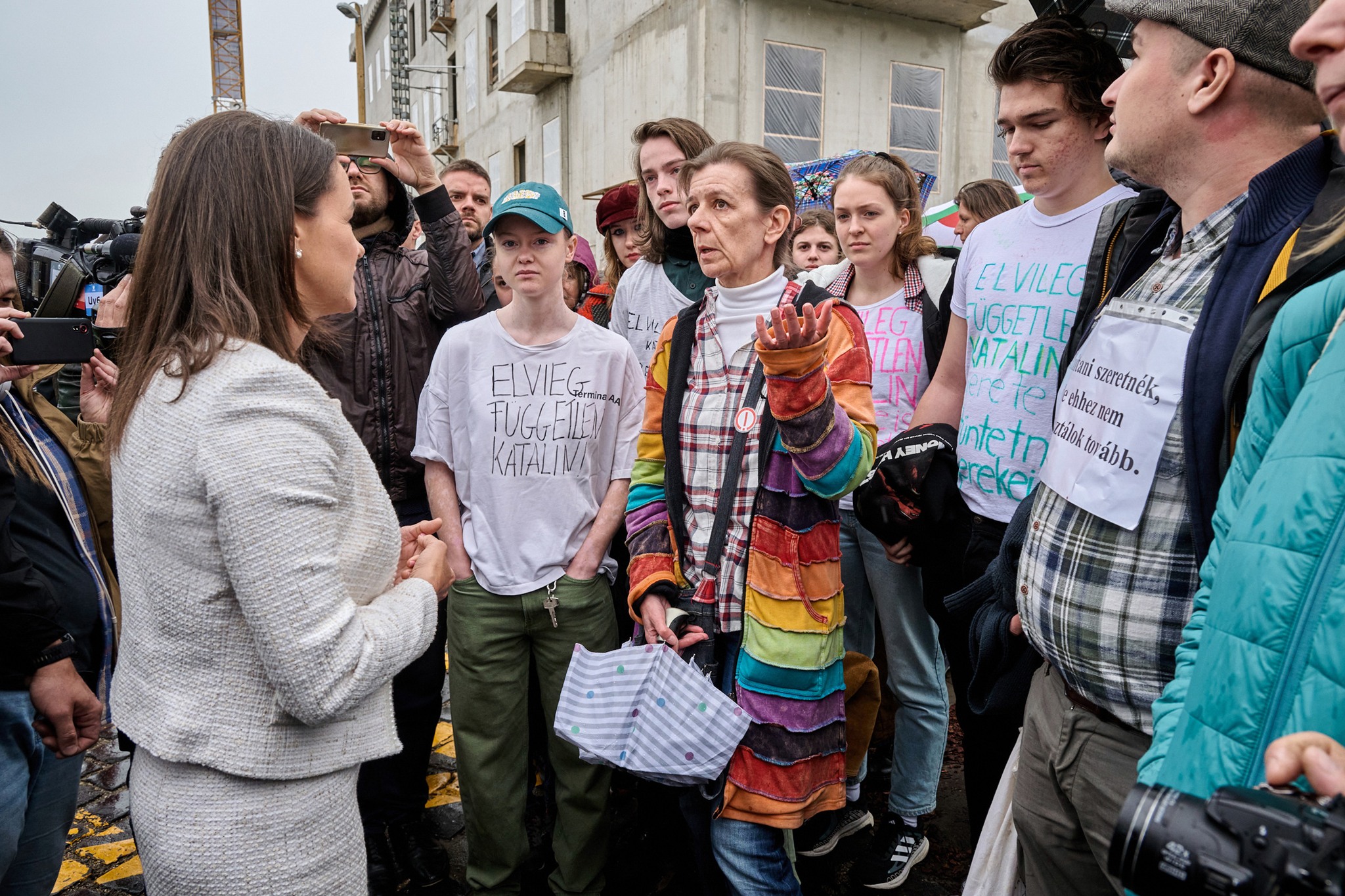
The 800 billion forints expected from the European Union will be used to raise the average salary of teachers.Continue reading

Last weekend, the Sándor Palace, where the Office of the President of the Republic is located, opened its doors to the public to mark the first anniversary of the inauguration of President Katalin Novák. On Sunday, Katalin Novák herself visited the site, where she also met and talked with protesters.
The crowd waiting to get into Sándor Palace included regular participants in the teachers’ protests and students belonging to the Egységes Diákfront (United Student Front), including Lili Pankotai, 18, who has become the leading figure in the protests. They wanted to use the open day to go to the president’s office to protest against the status law for teachers.
Unexpectedly though, Katalin Novák showed up at the scene and approached the protesters, and listened to their comments and requests.
Talking about the situation of teachers, she agreed that teachers’ salaries were low and should be increased regardless of EU funding.
“I have said this before, and I still think so,” she added. Altogether, the president calmly answered the sometimes impassioned questions from protesters, but the same could not be said about the demonstrators.
A video of the conversation between the two parties was made by Telex, which clearly shows that while the protesting teachers were able to address the president with some level of respect, this was not the case with the young students, who even interjected several times. At one point, when a teacher asked a question of Novák, Lili Pankotai, now infamous for her obscenities during previous protests, cut in and began to ask her own politically themed question.
The protesters said that they did not think the status law was necessary, adding that it is not retaliation that would move education forward. They said they wanted these issues to be discussed at the negotiating table, not out on the streets. In a related development, one of the teachers present, who had already resigned from her job, told the president that this solution of talking on the street was propagandistic and said that by showing herself willing to talk to them, Novák was merely condescending.
In response, Novák said that she accepted that the teacher did not like the government, did not agree with the government or with her as president, but that they would not get anywhere by insulting each other.
She added that she thought it was an insult to be called condescending when she went to talk to them of her own accord while she was treating them with the utmost respect. According to the president, it was propagandistic for the people present to demand that she should not sign the status law, and said that it would be frivolous for the demonstrators to expect any promises here and now.
At the end of the short meeting, members of the student movement complained that Novák still did not promise not to sign the status law.
In this case, the students seem to be mistaken, as a state leader is not obliged to make a promise to students sitting at school desks. That is one of the reasons why these demonstrations and rallies on behalf of the students and teachers cannot be taken seriously, as among others, they fundamentally lack any respect for public leaders. As the president said, one can dislike the government, but that is a different matter altogether, and basic respect should be given to all, especially when one party is a high-school student, and the other is an adult leader 30 years older.
Teachers’ protests have been going on in Hungary for more than a year now, and in the last period the demonstrations have become highly politicized. In addition, the demonstrations and their demands are difficult to follow because they are constantly changing and increasingly include anti-government elements. It would have been more expedient if teachers and their unions had agreed on a maximum of three demands in the first round and tried to achieve them. However, it is not a solution to keep adding to the demands, because that makes the whole movement unmanageable and somewhat frivolous.
At the same time, more and more students have joined the protests, most recently at the Carmelite Monastery where Prime Minister Viktor Orbán’s office is located, just next door to the Sándor Palace.
At the center of the recent demonstrations is the much-debated status law, published by the government in early March, that would radically overhaul the labor rights of public education workers and the functioning of trade unions and educational institutions. The draft includes elements such as the possibility of extending the school year to mid-summer, the possibility of changing the timetable during the year, and the possibility of working up to twelve hours a day, with some exceptions, but with an increase in the basic leave. The status law has provoked strong opposition from teachers, and since its publication, the government has held several talks with teachers’ unions, but no agreement has yet been reached.
Featured photo via Facebook/Katalin Novák